Free Printable Worksheets Possessive Nouns
Are you searching for free printable worksheets to help your students or children practice possessive nouns? Look no further! This blog post will provide you a variety of printable activities and worksheets to reinforce the concept of possessive nouns. Elementary school teachers or parents can use our Free Printable Worksheets Possessive Nouns to teach elementary school students about the concepts of possessive nouns such as how to make them from singular and plural nouns and how to make phrases using possessive nouns. So, these worksheets are the best learning resources for elementary education. Whether you're a teacher looking for classroom materials or a parent wanting to supplement your child's English language learning at home, we've got you covered!
Table of Images 👆
- Possessive Nouns Worksheets
- Singular Possessive Nouns Worksheet
- Printable Exercises on Possessive Nouns
- Possessive Nouns Practice Worksheets for Kids
- Possessive Nouns Printable Sheets
- Worksheets on Singular and Plural Possessive Nouns
- Possessive Nouns Printable Activities for Students
- Printable Practice Sheets for Possessive Nouns
- Possessive Nouns Activity Worksheets Printable
- Printable Worksheets on Plural Possessive Nouns
- Printable Possessive Nouns Exercises for Kids
- Printable Possessive Pronouns Worksheets for Grade 3
- Printable Singular and Plural Possessive Nouns Worksheets
- Possessive Nouns Printable Practice Sheets
- Printable Worksheets on Possessive Nouns for 4th Grade
- Printable Worksheets for Teaching Possessive Nouns in 5th Grade
- Printable Exercises on Possessive Nouns
- Worksheets for Kids on Possessive Nouns
- Possessive Nouns Worksheets for Kids
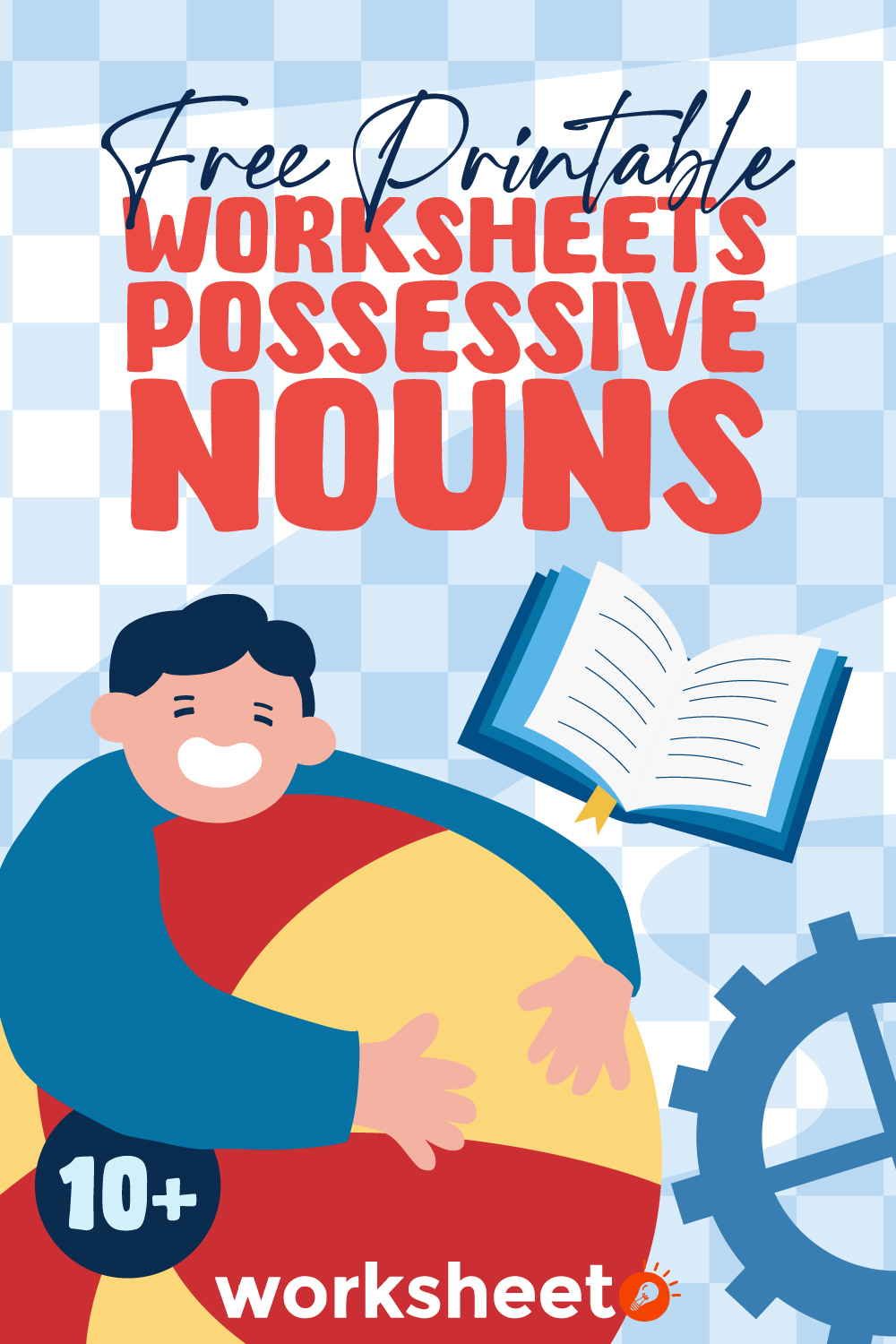
More Other Worksheets
Kindergarten Worksheet My RoomSpanish Verb Worksheets
Healthy Eating Plate Printable Worksheet
Cooking Vocabulary Worksheet
My Shadow Worksheet
Large Printable Blank Pyramid Worksheet
Relationship Circles Worksheet
DNA Code Worksheet
Meiosis Worksheet Answer Key
Rosa Parks Worksheet Grade 1
Improve your language skills using our Free Printable Worksheets with Possessive Nouns!
What is a Noun?
Nouns are words used to give names to objects such as people, things, places, and ideas. The noun can be used as an object (direct and indirect) or a subject. Nouns can also be used to complement objects and complement subjects.
Examples of nouns are as follows.
- Person: Jason, cousin, teacher
- Place: New York, classroom, living room
- Thing: Laptop, pen, pencil
- Idea: Success, joy, kindness
Nouns also have several types. The types of nouns are common nouns and proper nouns, countable and uncountable nouns, abstract and concrete nouns, singular and plural nouns, and possessive nouns. So, here we will discuss possessive nouns as one type of noun that is important to learn.
What is a Possessive Noun?
A possessive noun is a noun used to explain possession. Possessive nouns are used to represent the ownership of something. For example, Jerry's house.
Possessive nouns are formed from basic nouns and added with an apostrophe and s to become 's. An example is girl's for a singular noun. Meanwhile, possessive nouns for plural nouns only use the apostrophe (') without s. An example is girls'.
However, there are also possessive nouns that do not explain ownership. An example is “Alice's sister.” This possessive noun only explains the relationship between Alice and her sister, not explaining that Alice is the owner of her sister.
What are the Rules for Possessive Nouns?
There are several rules for using possessive nouns that you must understand. Here are these rules.
- For singular nouns (without s), add 's (apostrophe s). An example is Andy's car.
- For plural nouns (using s), just add an apostrophe ('). For example, students' books.
- For plural nouns without s, add 's (apostrophe s). An example is children's games.
- To explain a place or brand, add the name of the brand or place. An example is “This is the doctor's house.”
How to Teach Possessive Nouns to Children?
Possessive nouns are often used in daily conversation, so understanding the use of possessive nouns is very important for children. To teach possessive nouns to children, use interactive methods that are interesting and fun for children. Some activities to teach possessive nouns to children are:
- Sorting Activities: The first method is sorting. To do this activity, you must prepare a worksheet that presents plural nouns and singular nouns. Then, ask the children to make possessive nouns from the plural and singular nouns.
- Games: Many games can be used to teach possessive nouns to children. An example is Tic-Tac-Toe. Through this game, children can learn possessive nouns through word cards or board games.
- Worksheets: Not only the 2 methods above, you can also use worksheets to teach possessive nouns to children in a fun way. Use worksheets that present interesting visuals. They can do various educational activities using these worksheets, such as writing possessive nouns, practicing making possessive nouns or coloring objects that represent possessive nouns.
When teaching possessive nouns, you must also teach possessive nouns based on the children's ability level. For beginners, teach possessive nouns using these steps.
- On the first day, teach children about possessive nouns for singular nouns. Ask the children to write singular nouns and ask them to add.
- On the second day, teach children about phrases that use possessive nouns. Because this is a difficult thing for children, you can give them some examples. Explain how to make phrases from the possessive noun. Then, make sure that each child understands your explanation.
- On the third day, give the children various possessive noun questions so they can practice the theory they have learned. Ask them to do regular exercises so they can master the concept of possessive nouns.
What is a Possessive Noun Worksheet?
A possessive noun worksheet is a worksheet specifically designed to help children, especially elementary school students, understand the concept of possessive nouns. By using this worksheet, teachers can more easily explain how to make possessive nouns from singular nouns and plural nouns. Students can also practice making various words using possessive nouns through this worksheet.
To use it as a learning tool in class, teachers need to download and print our Free Printable Worksheets Possessive Nouns first. After that, explain the concept of possessive nouns to the children and distribute the worksheet. You can ask students to make some groups and let them complete the worksheet together.
What are the Benefits of Using Possessive Noun Worksheets?
Using possessive noun worksheets not only helps children understand the concept of possessive nouns but also improves their important skills.
- Possessive noun worksheets help children to understand new vocabulary. The reason is, that children must be able to make possessive nouns from plural nouns and singular nouns so that they will learn various nouns.
- The worksheet is one of the best ways to improve children's language development. This is because they can learn how to make possessive nouns so that their language skills will improve. This will affect children's communication skills.
- It can also increase children's self-confidence. This is because children will master possessive nouns which are useful in their lives. It has a positive impact on children's self-confidence.
- Because possessive nouns are often used in texts and conversations, learning possessive nouns using worksheets will also help children understand various subjects.
Teachers and parents can help elementary school students to improve their English language skills using Free Printable Worksheets Possessive Nouns. This worksheet helps students learn how to make possessive nouns correctly.
By using these learning resources regularly, students will have good language skills such as understanding new vocabulary and understanding grammar. So, these worksheets are important for children's education.
Have something to share?
Who is Worksheeto?
At Worksheeto, we are committed to delivering an extensive and varied portfolio of superior quality worksheets, designed to address the educational demands of students, educators, and parents.


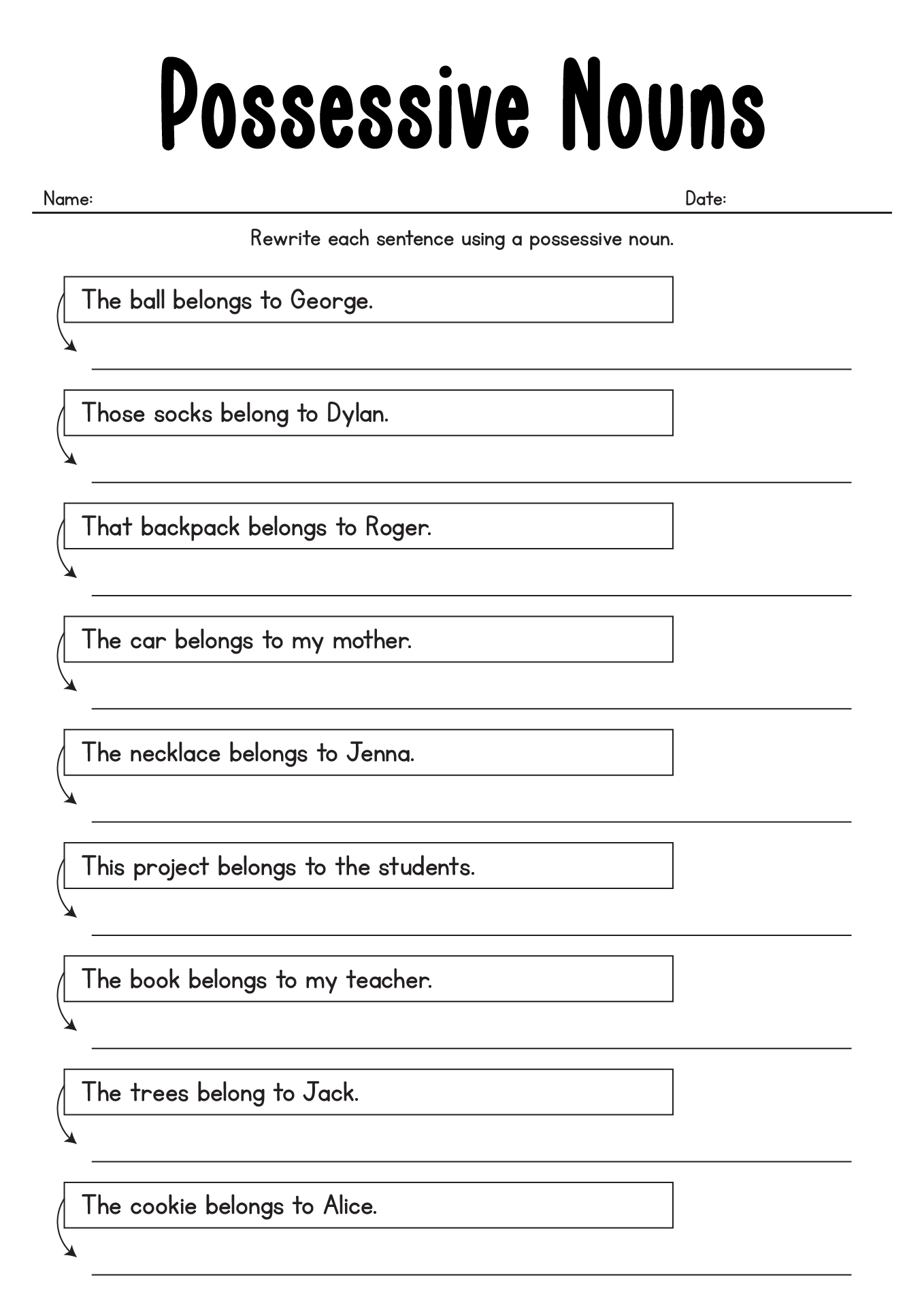


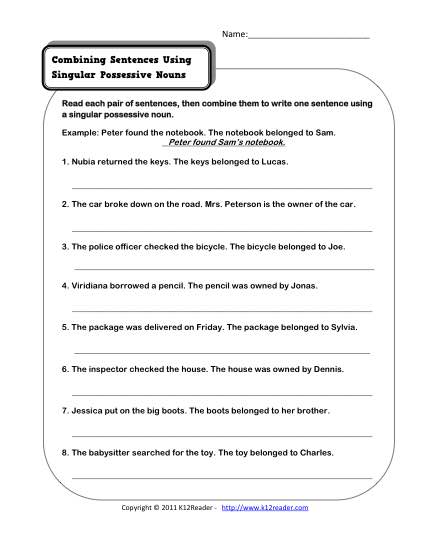
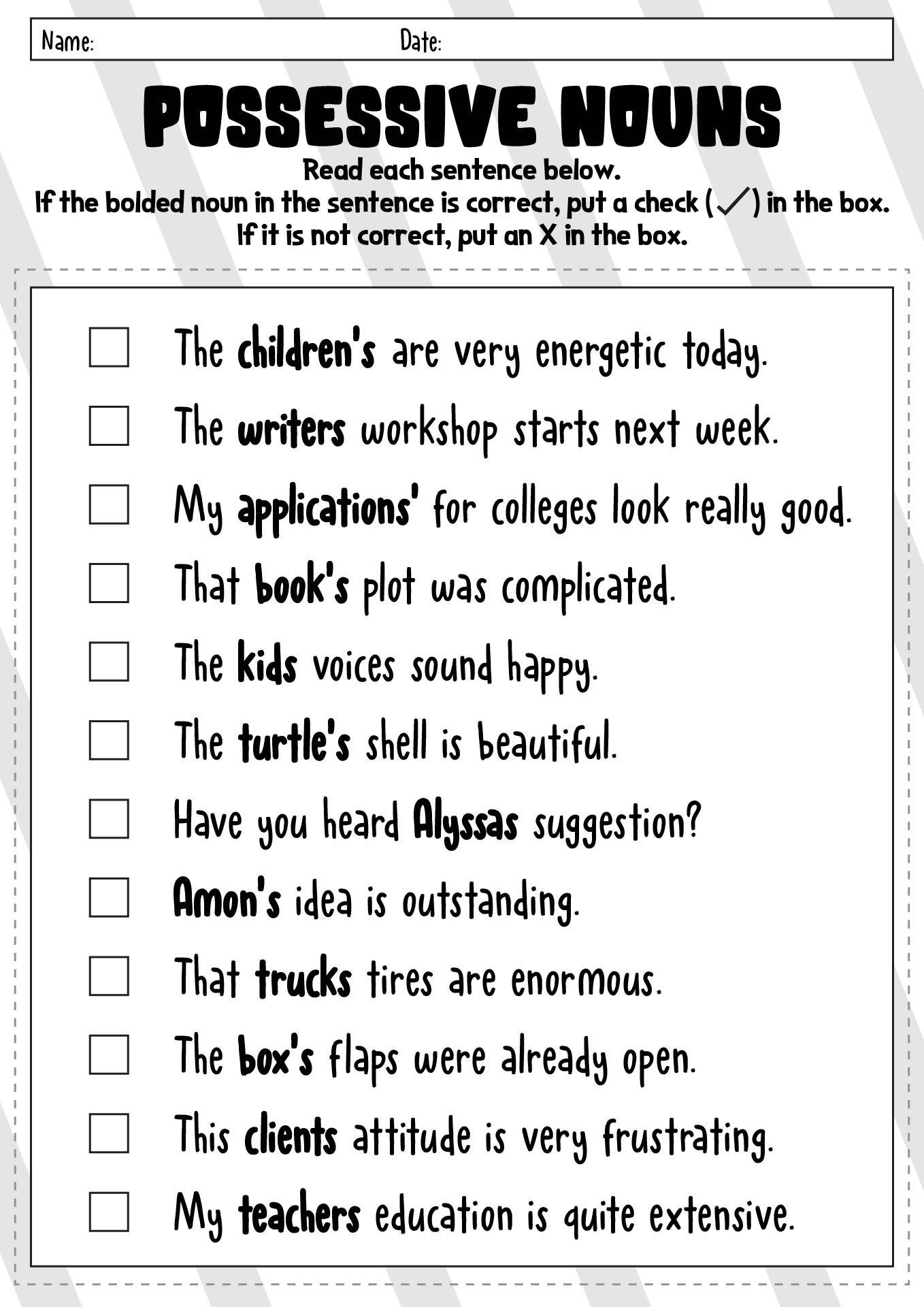
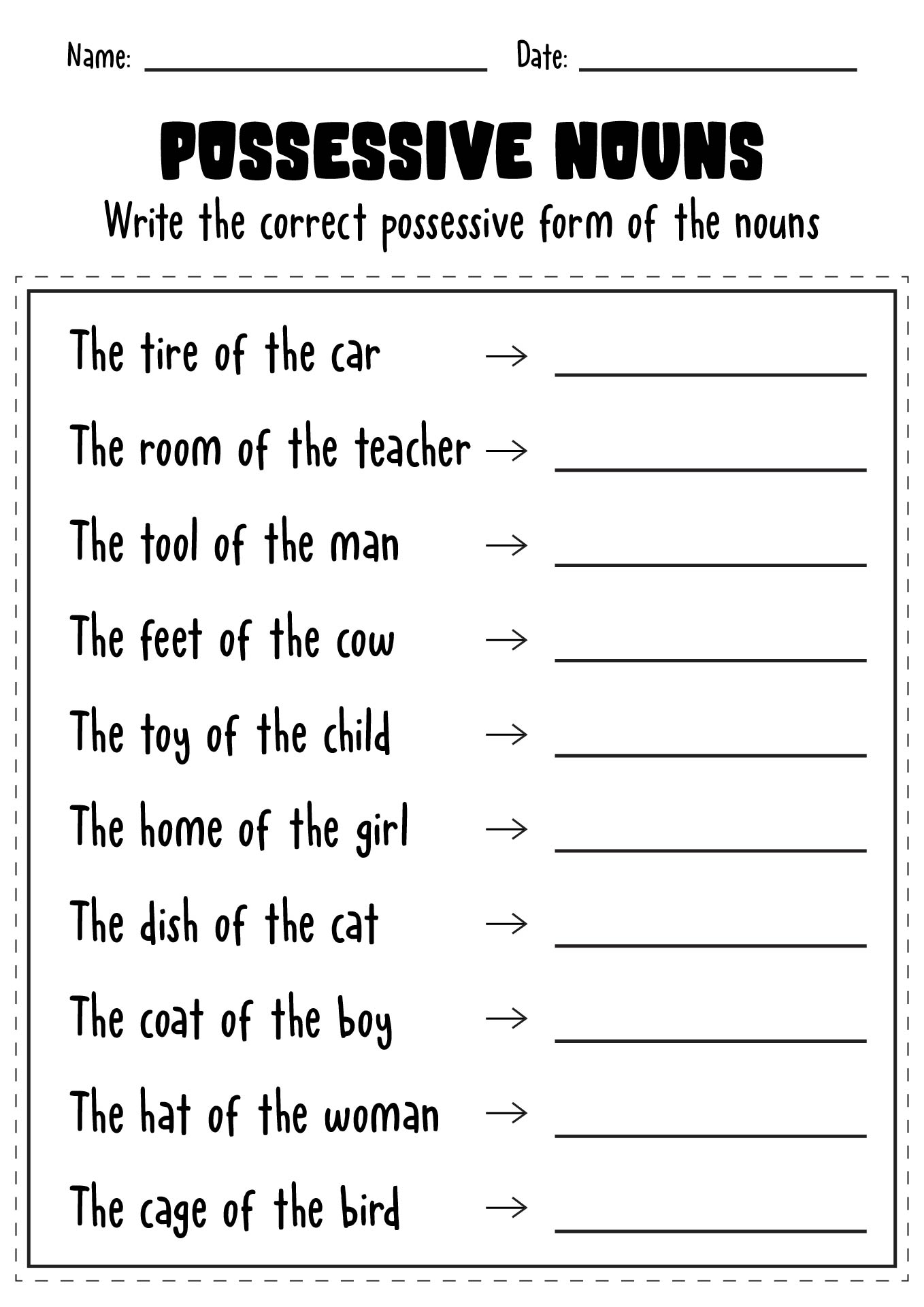
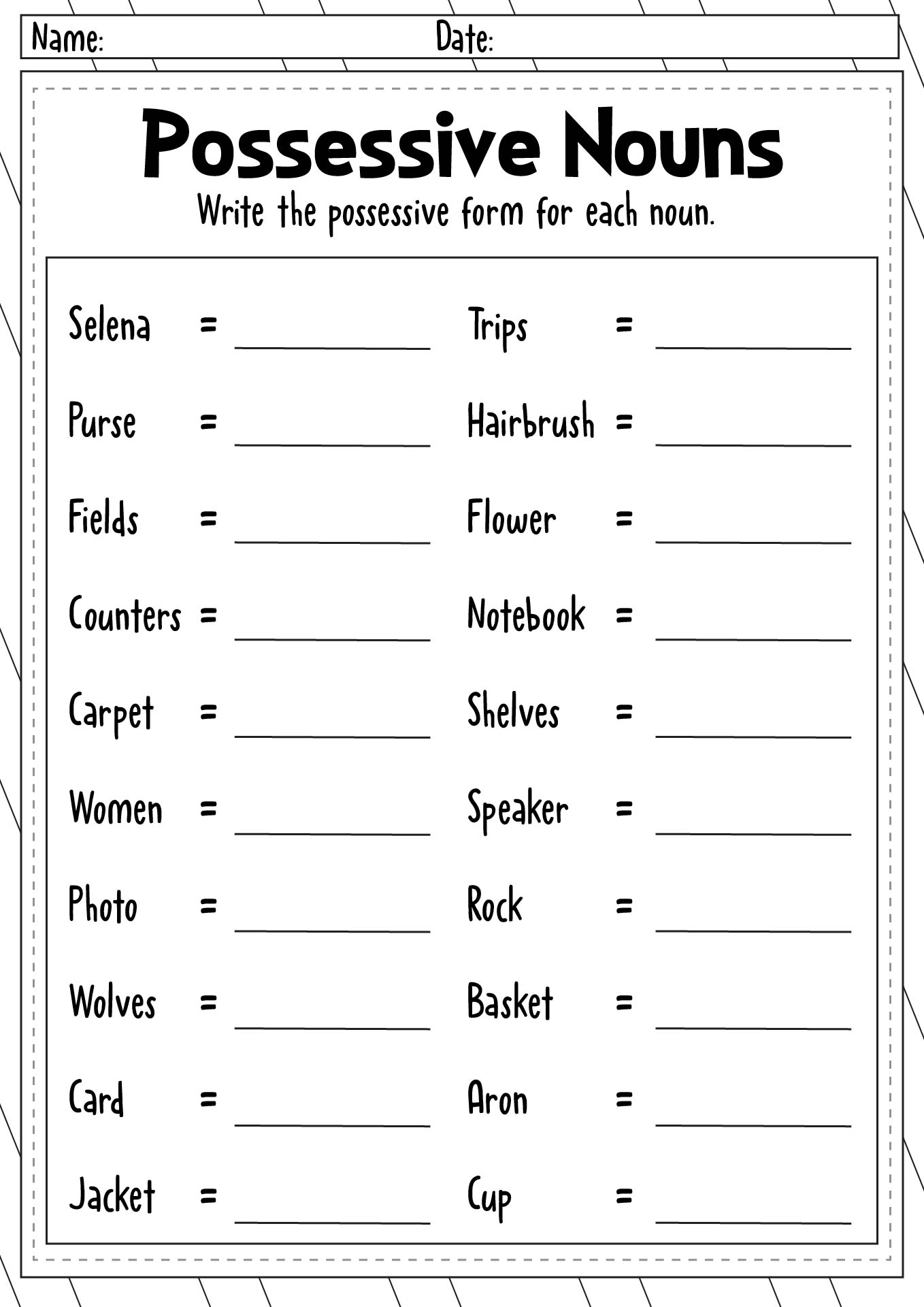
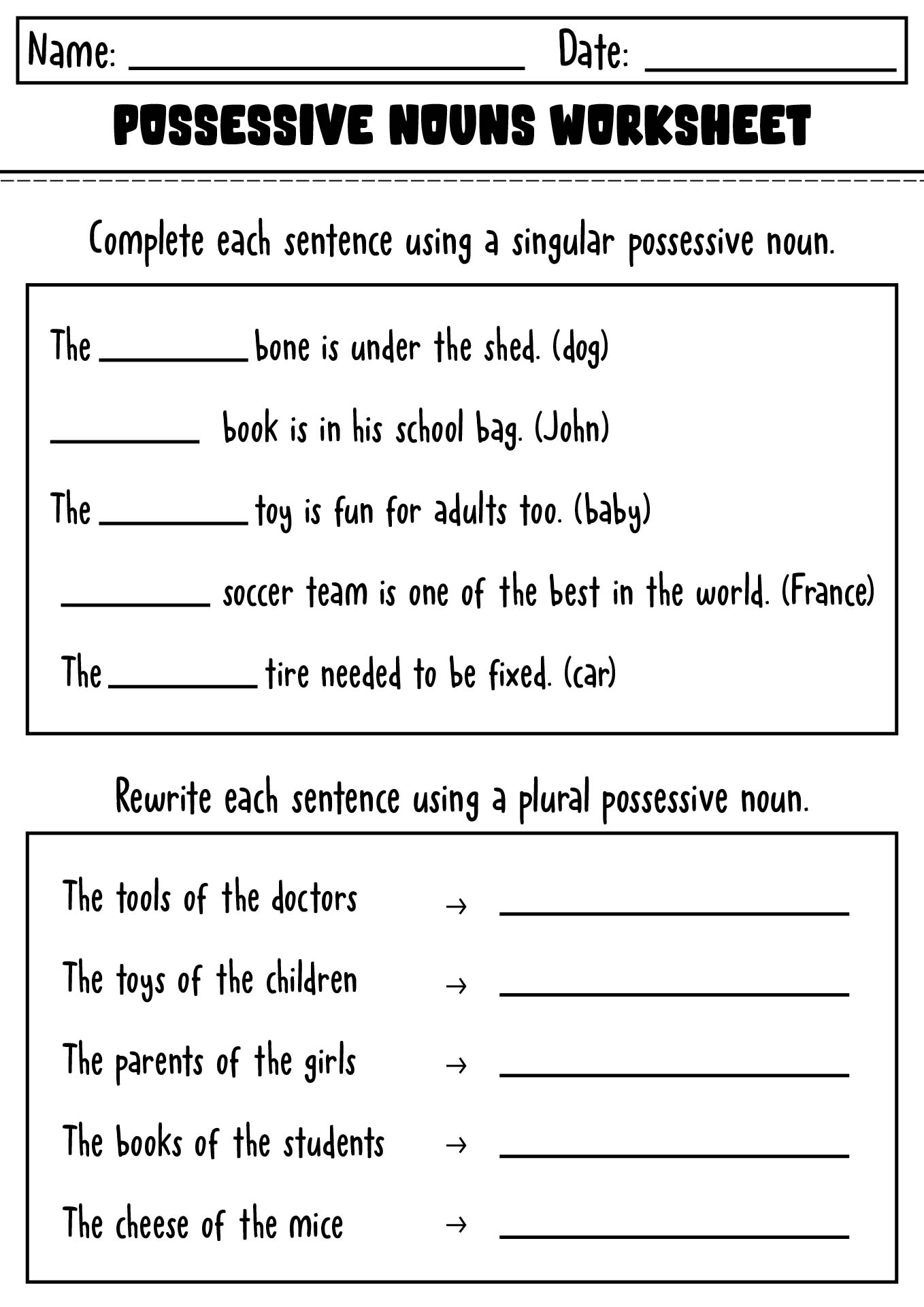
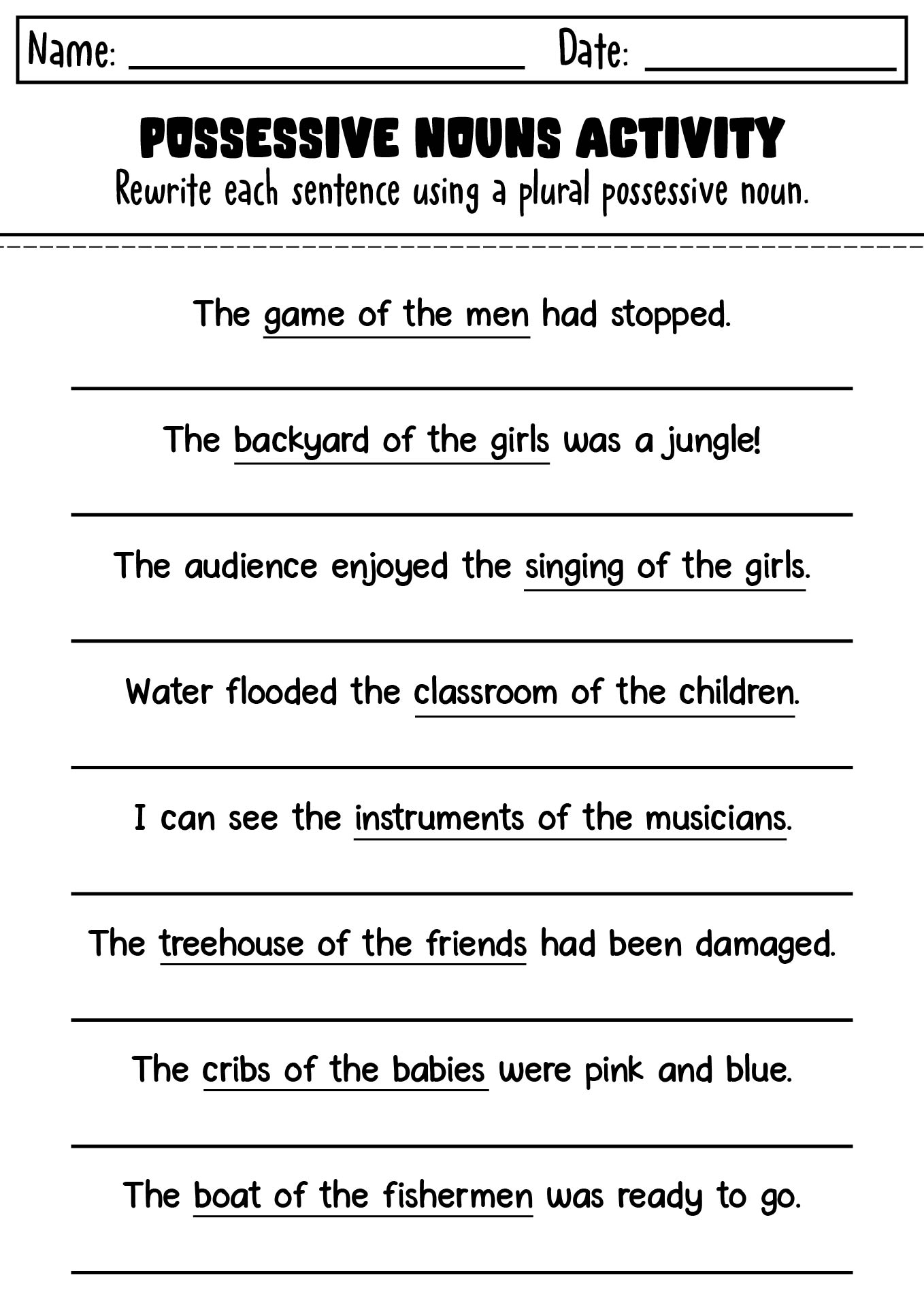
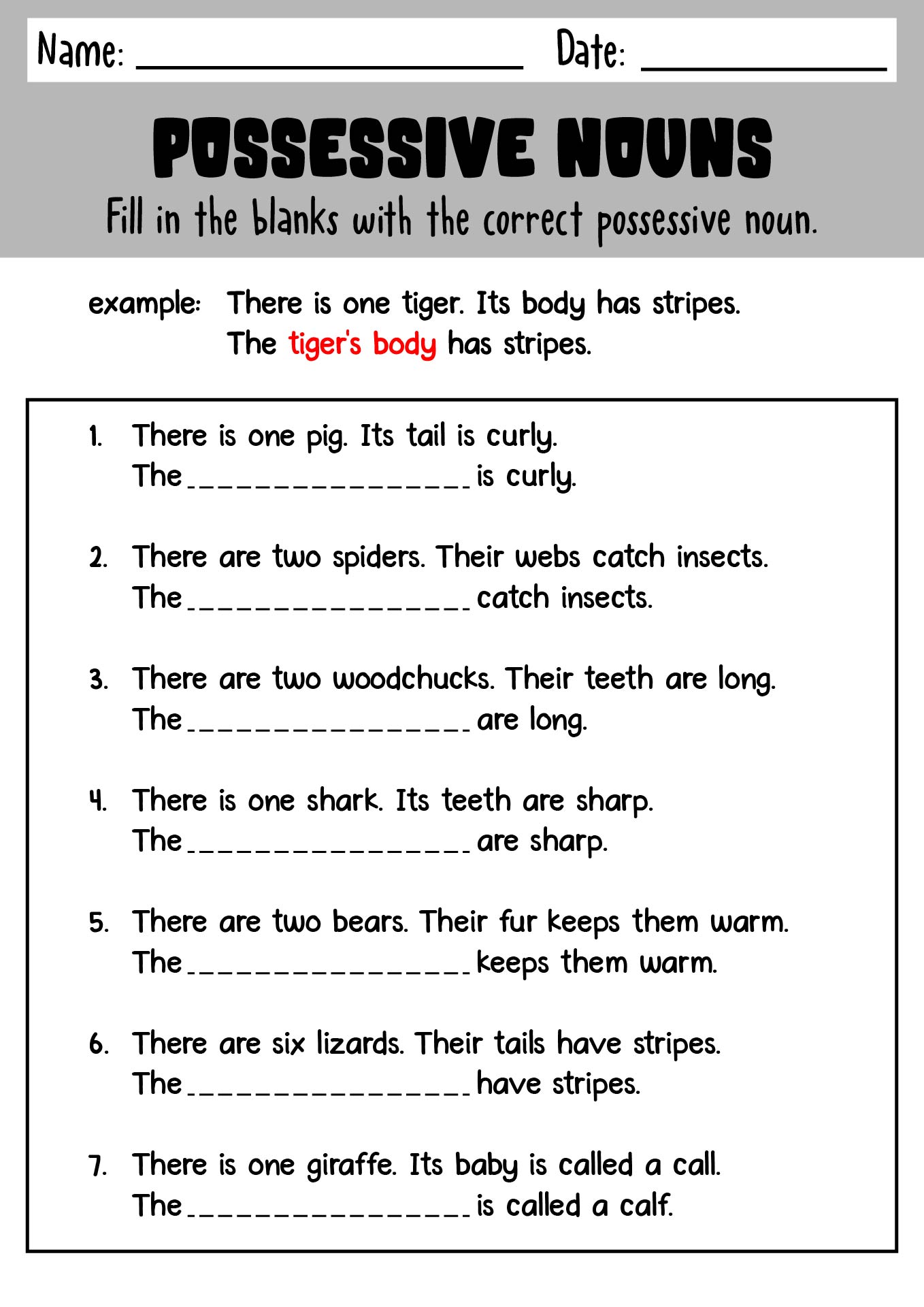
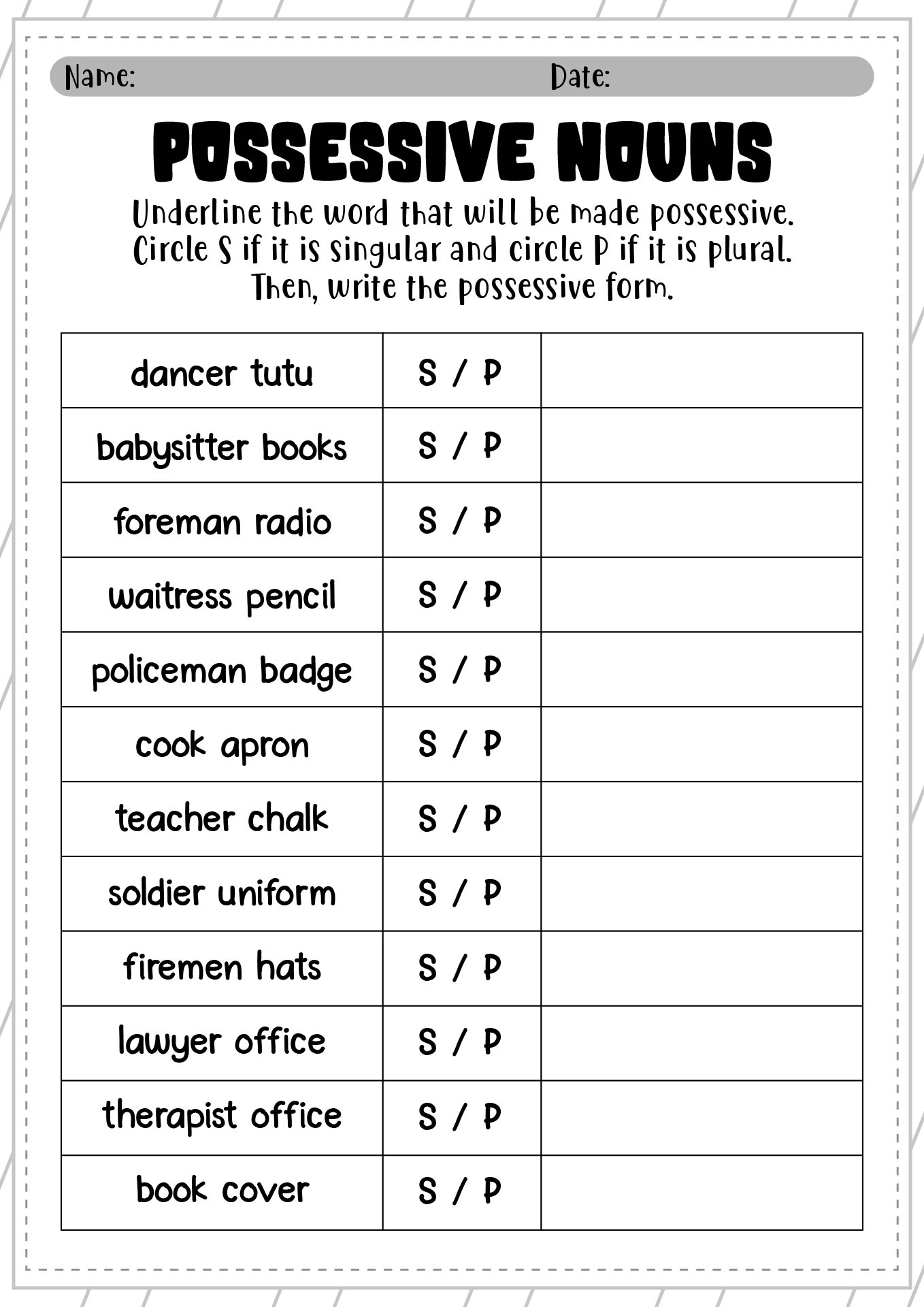
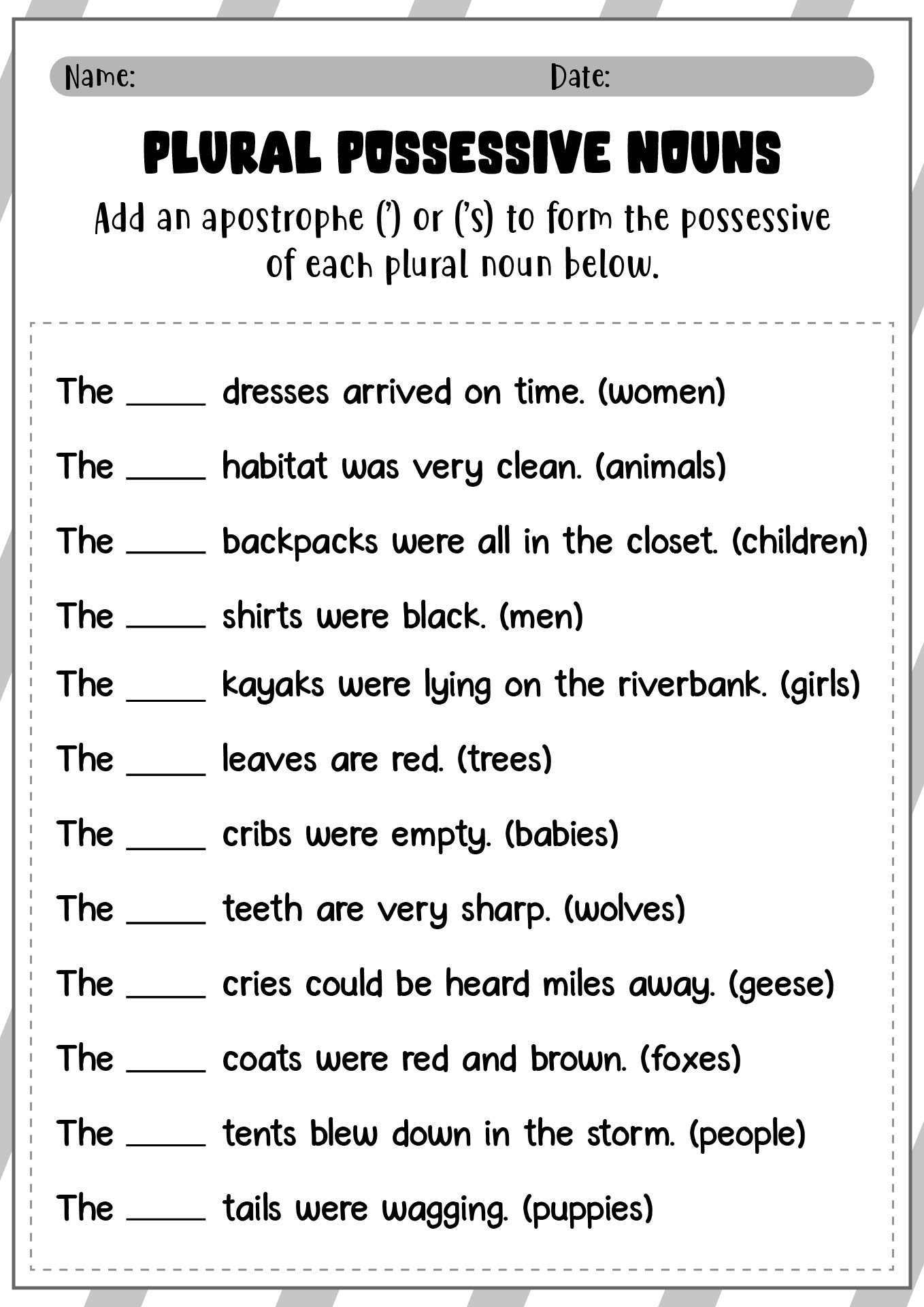
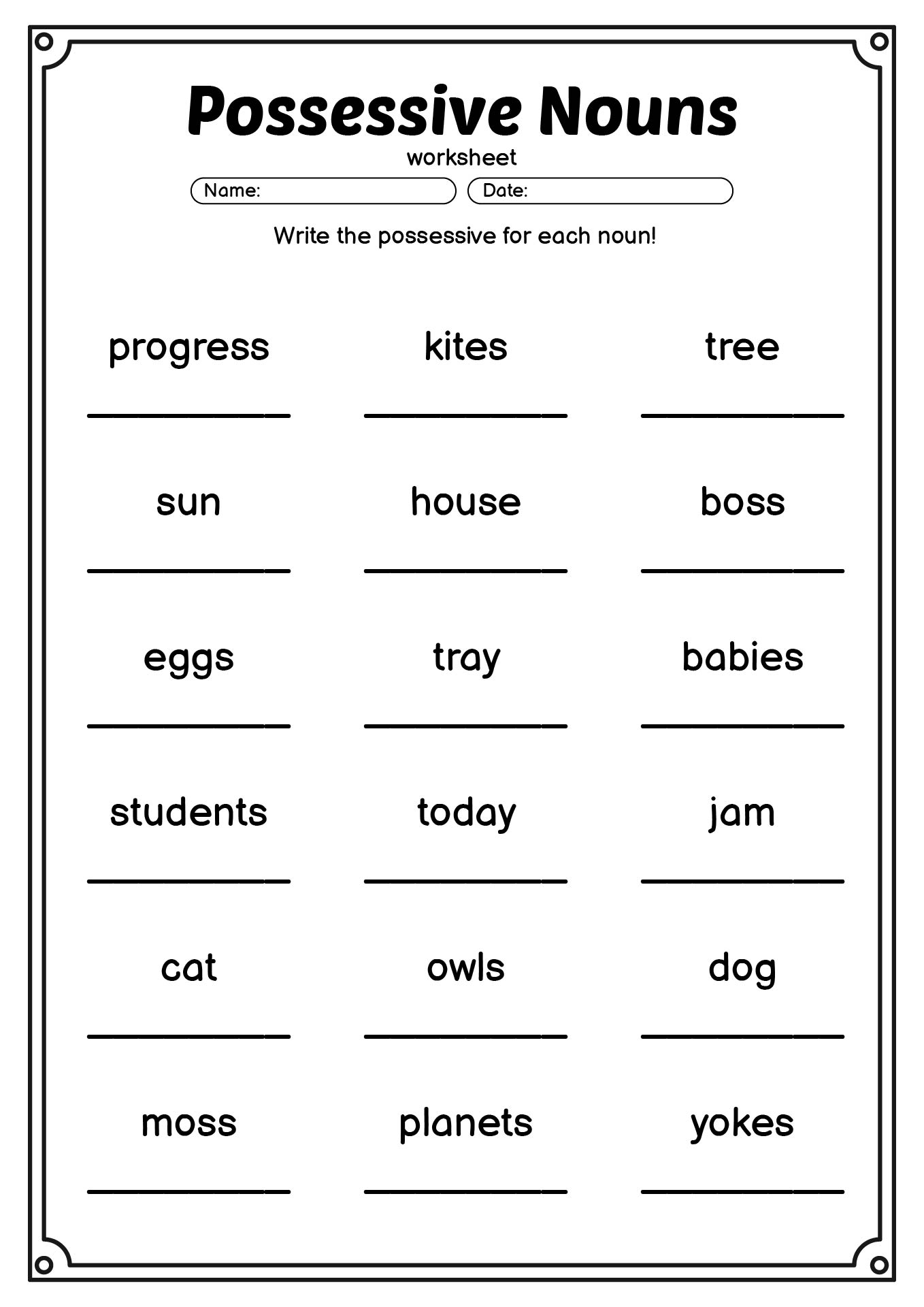
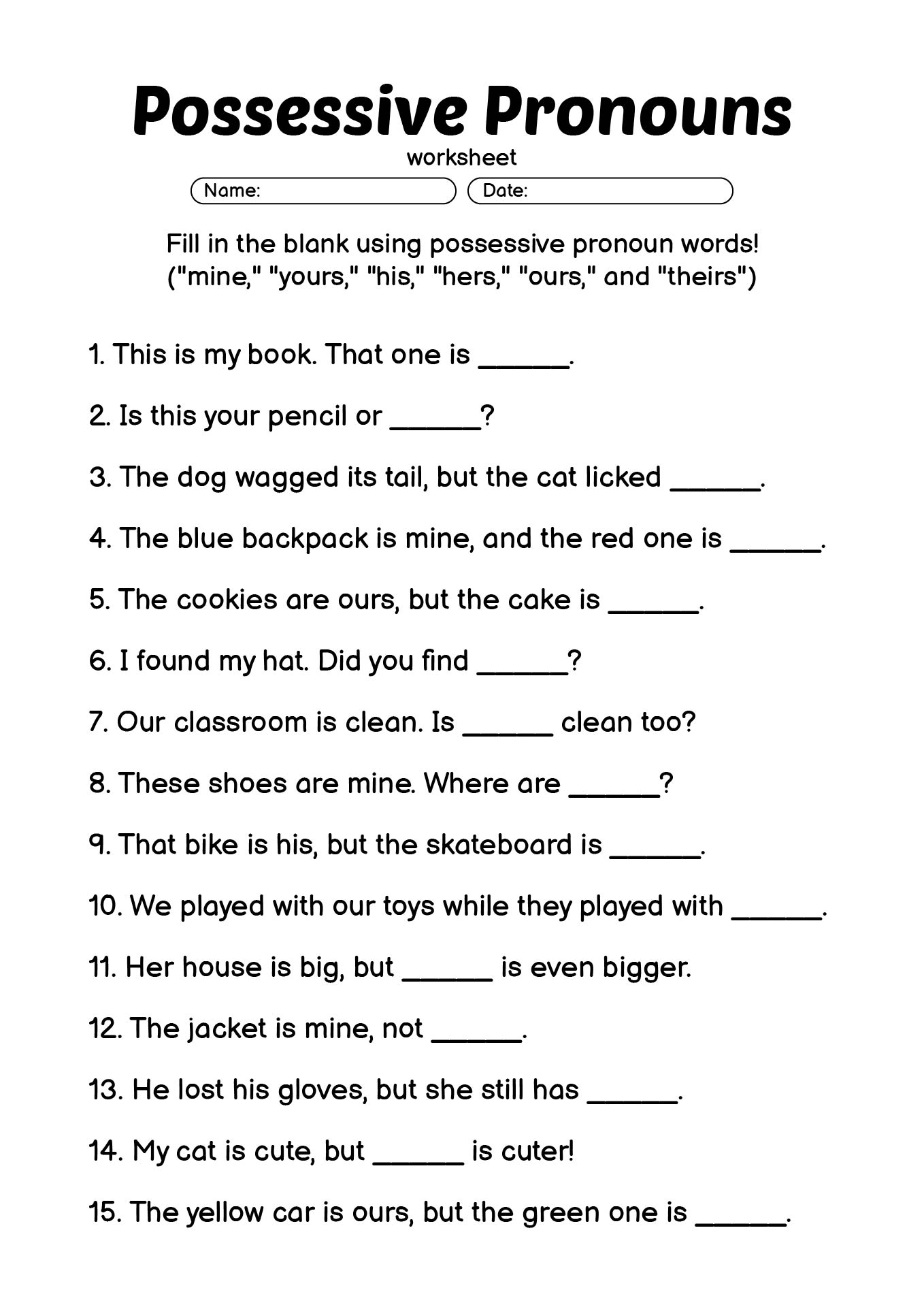
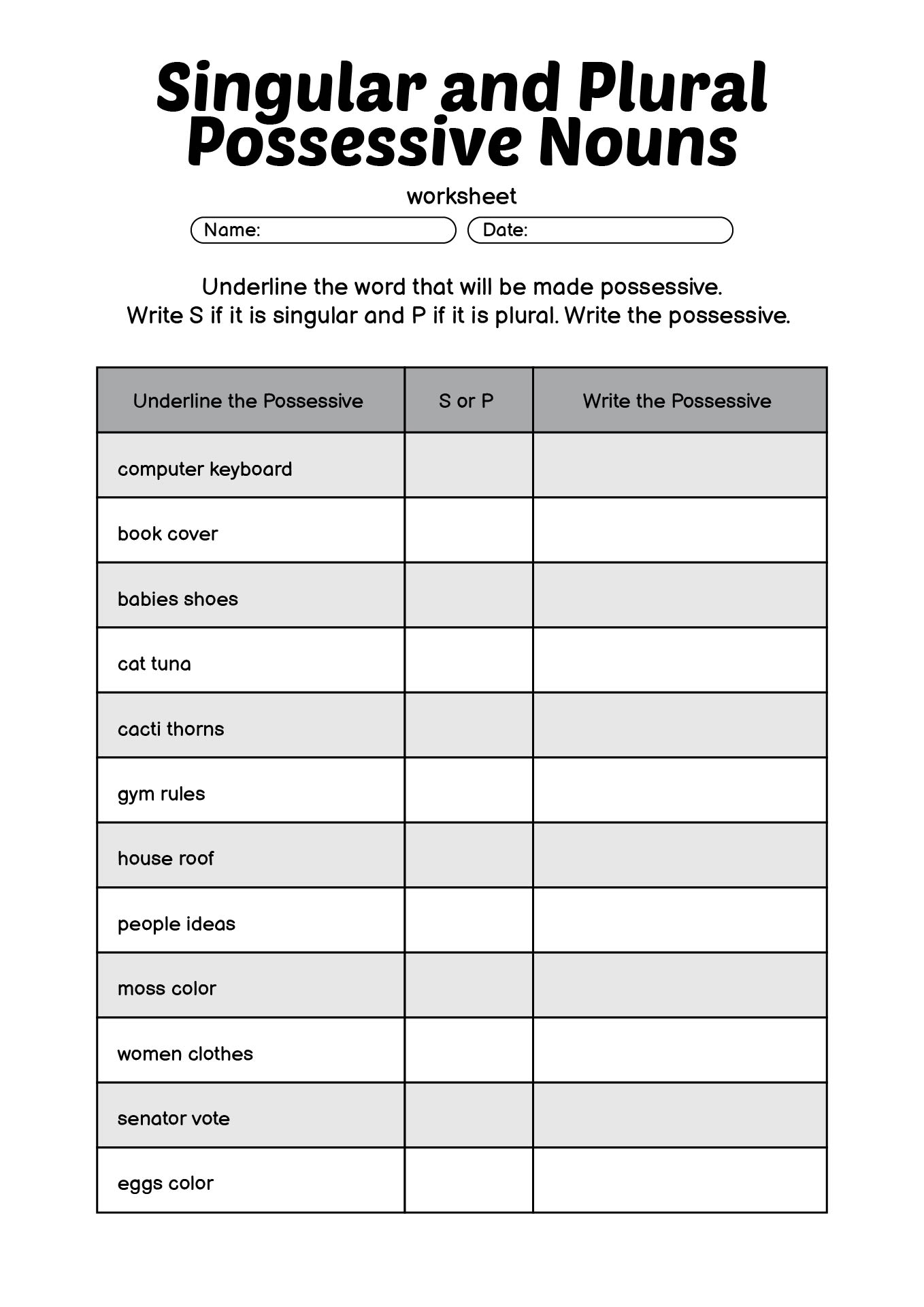
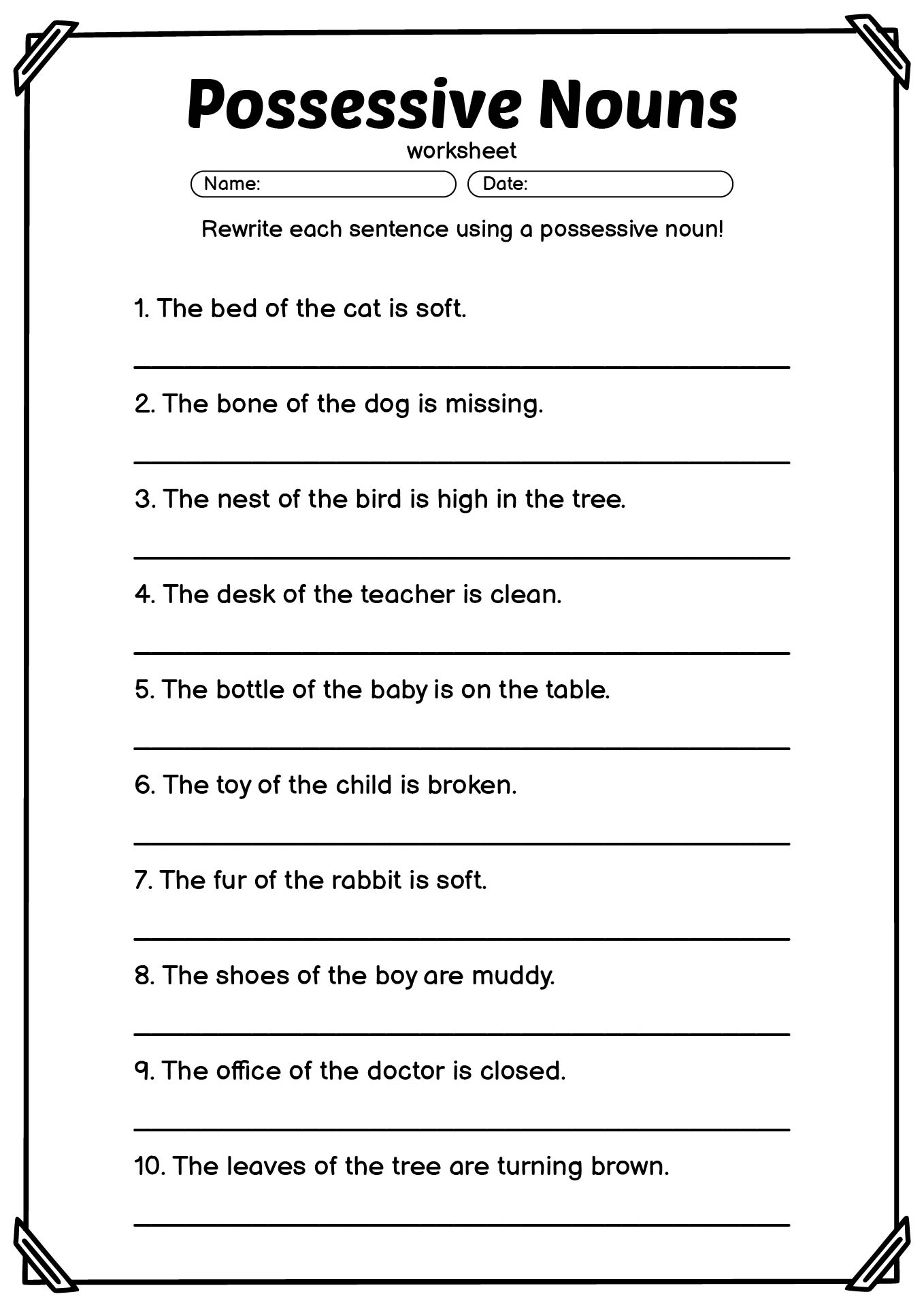
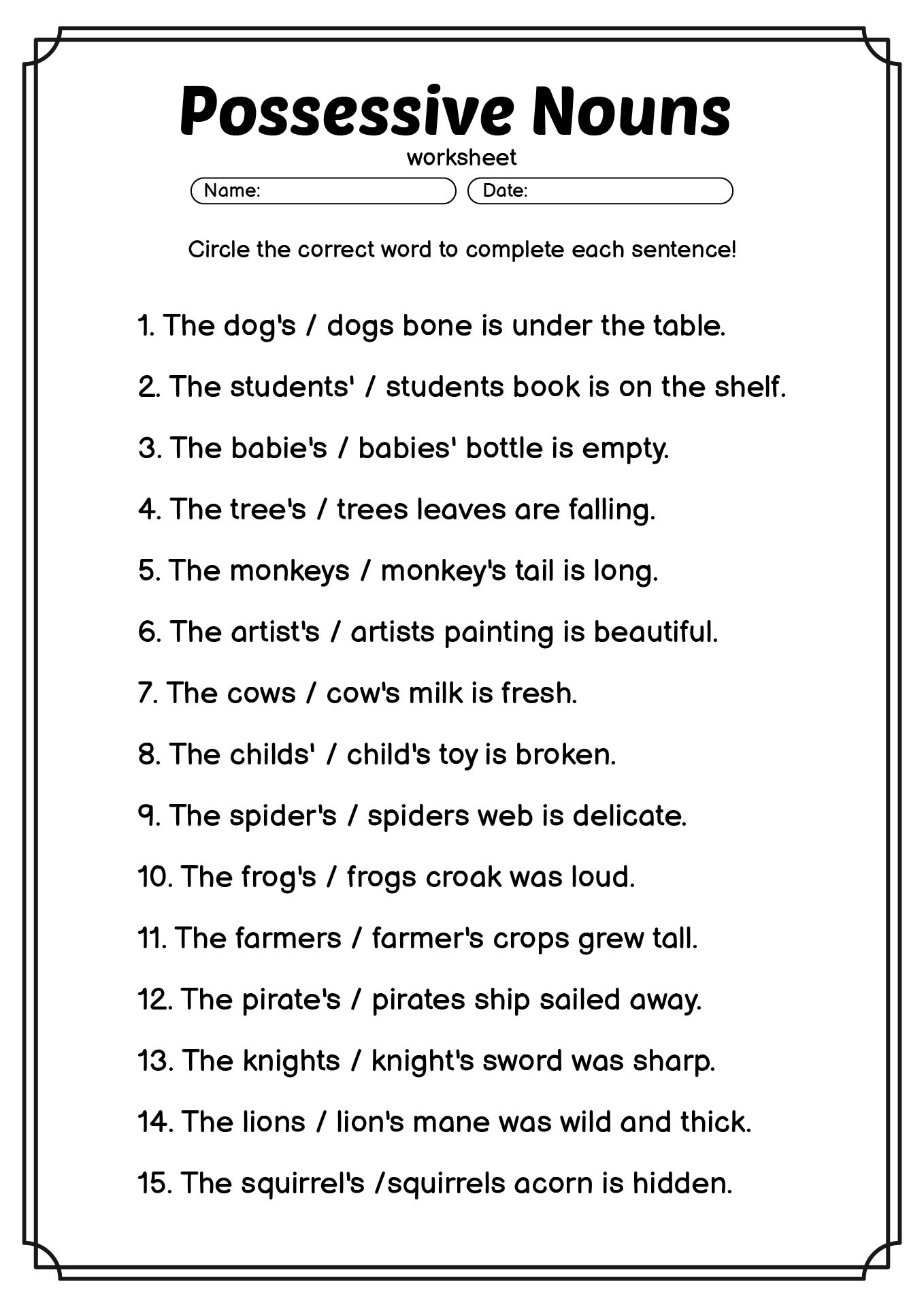
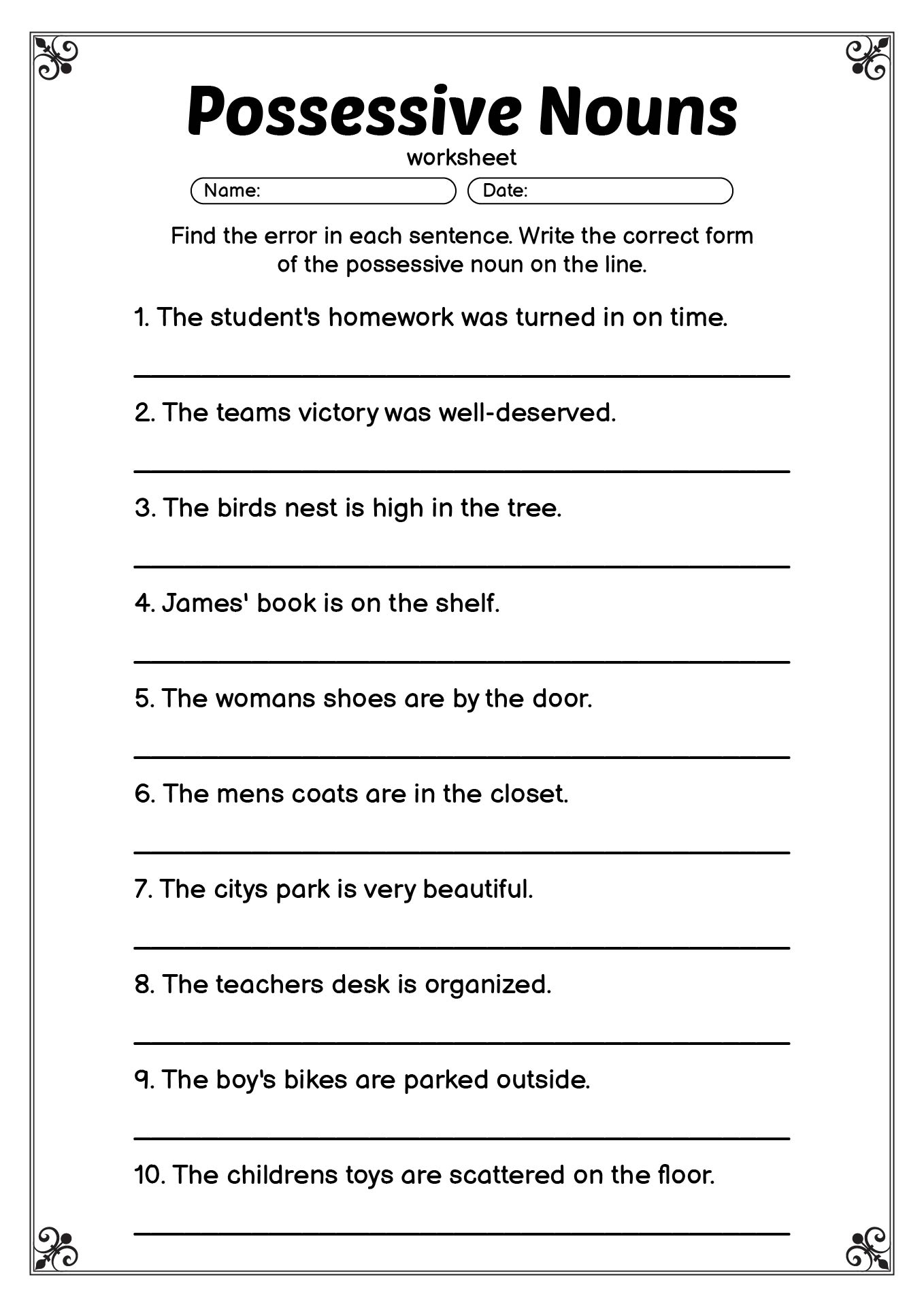
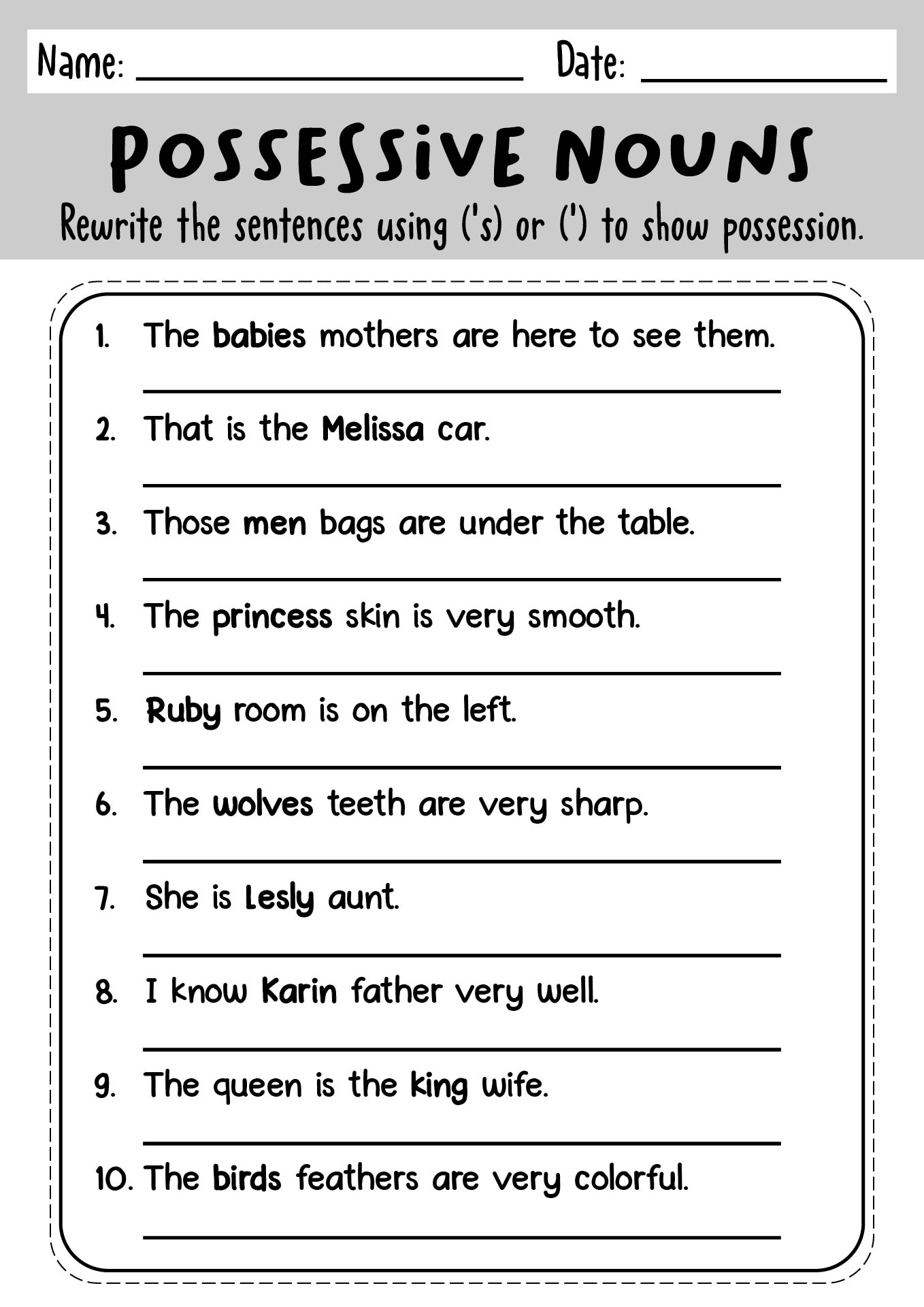
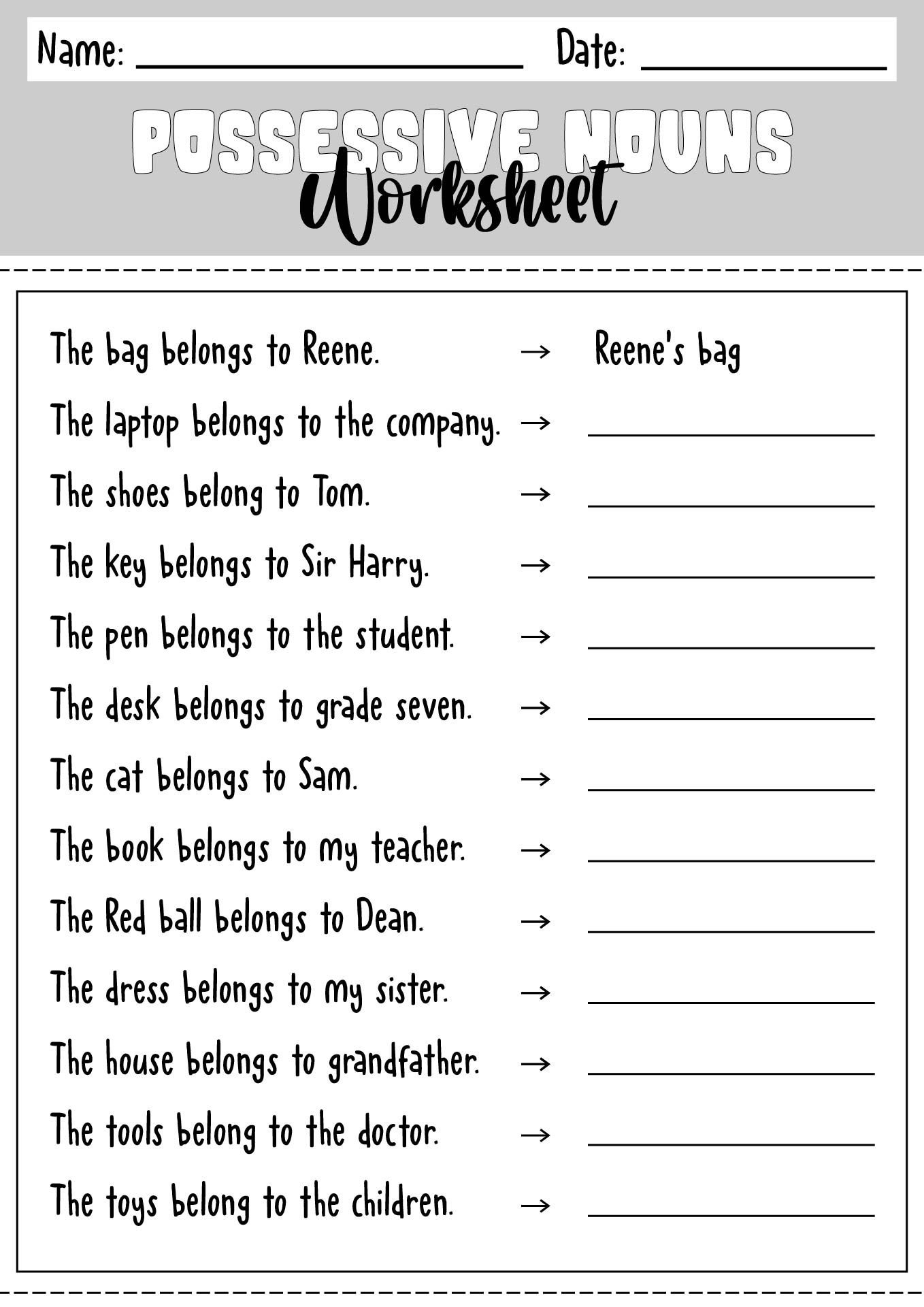















Comments